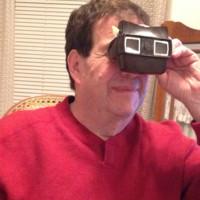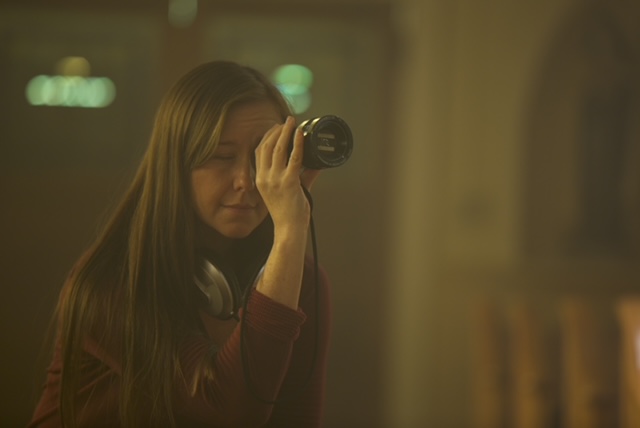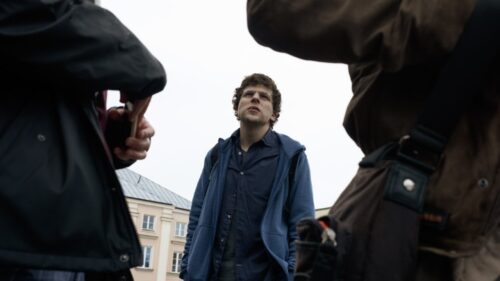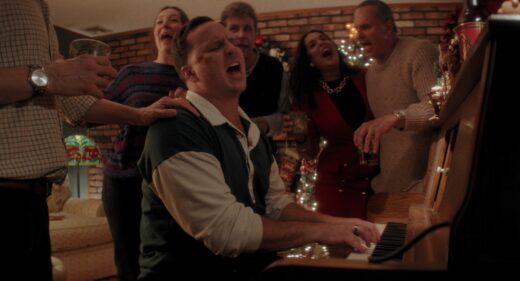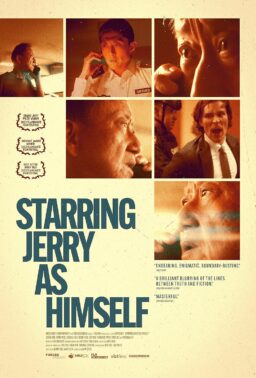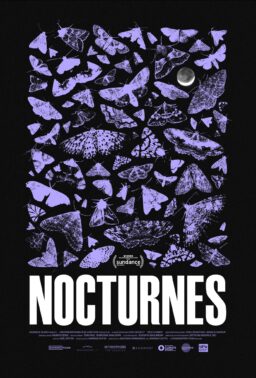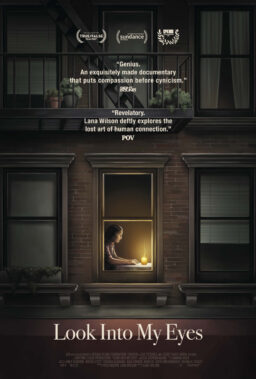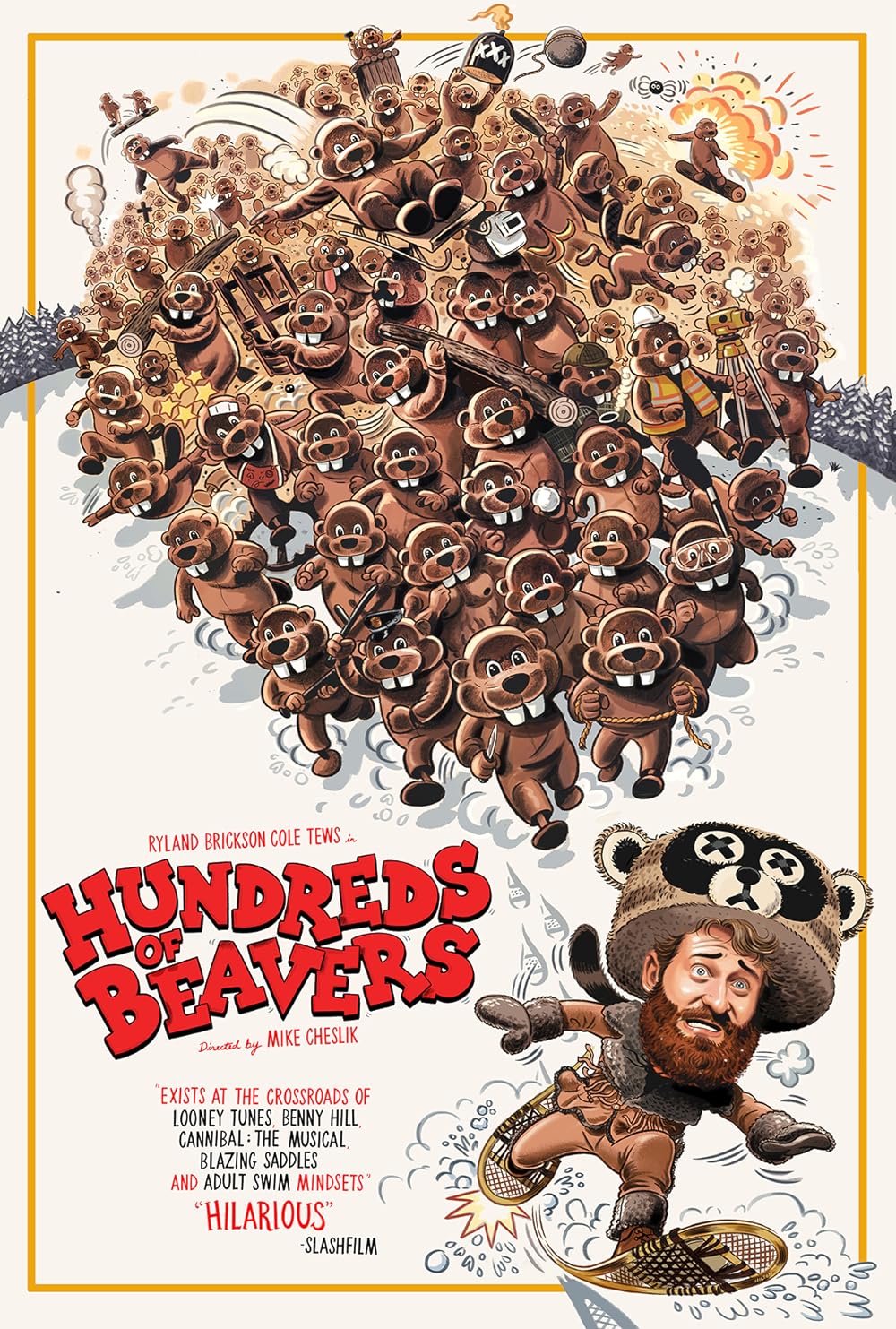Rebecca Harrell Tickell considers sharing a "puddle jumper" with Roger Ebert en route to the 1998 Virginia Film Festival a "defining" moment for her.
She was traveling to the festival on behalf of John D. Hancock's "A Piece of Eden." Harrell Tickell made her screen debut in Hancock's "Prancer," an underseen Christmas film that charmed Ebert, especially the then-nine-year-old Rebecca's performance as Jessica, the true believer who insists that an injured reindeer she befriends and shelters is Santa's one and only Prancer. He wrote: "What really redeems the movie, taking it out of the category of kiddie picture and giving it a heart and gumption, is Rebecca Harrell. She's something. She has a troublemaker's look in her eye and a round, pixie face that's filled with mischief." (Harrell Tickell framed his three-star review.)
Harrell Tickell was 18 when she met Ebert. "I remember being so delighted to thank him in person for his words," she recalls, and adds with a laugh, "He gave me his honest feedback on ‘Eden.'"
This is her diplomatic way of saying he gave the film a thumb's down. ("A good-hearted film with many virtues, although riveting entertainment value is not one of them," he wrote in his one-and-a-half-star review.)
At his invitation, she shared his limo. She cherishes her memory of their conversation. "He told me I had the magic," she said, "but I shouldn't let the business take away from that. In essence, he said to not let Hollywood ruin me."
She didn't, but she became disillusioned with the unrewarding roles she was offered. "I thought it was all going to be like ‘Prancer,' with incredible parts that would allow me to explore the craft," she says. "I ended up cast as a victim or eye candy in horror movies."
The final straw was "Saint Sinner" (2002), based on a story by horror master Clive Barker. She was cast as Nakir, a succubus. "I went into it full of hope and confidence; ready to take on this demon character," she says. "I was going to stretch myself, but it was a nightmare. At one point, I was giving birth to a giant squid-like baby on the basement floor of a monastery. I was covered in goo and strapped to a table. I needed to pee, but there were all these puppeteers, and I was not allowed to get up. I knew I needed to do something else."
She worked for a time in real estate, but after seeing Al Gore's Oscar-winning documentary "An Inconvenient Truth" in a theater, she found her "something else." "I just sat there until after the credits rolled, and I thought, ‘This is my calling," she says. "That's what I want to do with my life."
And she did. With the determination and pluck of Jessica in "Prancer," she is an award-winning documentary producer and director in collaboration with her husband, Joshua Tickell, whom she met in 2005 doing volunteer work. Their first scripted feature, "On Sacred Ground," is just out in theaters and on demand.
The Tickells are kindred eco-spirits. Rebecca grew up in Vermont and spent a lot of time outdoors. Alluding to her "stressful upbringing," she says that nature was "deeply healing."
Joshua moved from his native Australia to Louisiana when he was nine. He lived near oil refineries and experienced extreme pollution.
In high school, she saw him interviewed on "Today" about the Veggie Van, a vehicle that runs on vegetable oil, that he drove across the country to raise awareness of energy alternatives. "I was a goner," Harrell Tickell says. "From day one, we worked well together. We shared the same values and had the same vision."
Their first co-production, "Fuel" (2008) won the Audience Award at the Sundance Film Festival. The New York Times praised, "You may leave the theater feeling a lot more hopeful than when you went in."
Harrell Tickell's grassroots marketing efforts turned the town upside down. She ordered 10,000 buttons that read "Make fuel, not war," with a flower coming out of the nozzle. She reports one out of every four Sundance attendees wore one.
One of them joined the Tickells for breakfast during the festival. Rebecca recalls that when he started talking about oil, she interrupted him. "I said, ‘That's what Neil Young says in the movie.' Josh put his hand on my knee and said, ‘Honey, this is Neil Young.' I didn't recognize him. His hair was brushed, and he was wearing a cardigan."

The Tickells' most recent doc, "Kiss the Ground" (2020), narrated by Woody Harrelson, is available on Netflix. The Los Angeles Times called it "the good kind of kale ... dense but nutritious." It is enjoying a second life in classrooms, Harrell Tickell reports.
The Tickells have made more than 10 feature-length documentaries. How do they choose their projects? "We notoriously throw a lot of mud at the wall," she says. "First, we get so inspired by a subject that we can't stop thinking about it. Then we create a pitch deck and take it around and see if anyone wants to fund it. Sometimes our ideas [like an abandoned project, "Sex and Algae"] are too radical. But once an investor is on board and we've been given a green light, we've never not finished a project. Some are easier than others."
This brings us to "On Sacred Ground," which was filmed in 2018, ahead of "Kiss the Ground." This hard-fought passion project was delayed by Covid and the usual indie film bugaboo: money.
"We ran through our budget—which was less than what we've spent on our documentaries—after principal photography," she says. "Every time Joshua and I made a little profit for ourselves from something else, that money was put back into ‘On Sacred Ground.'"
William Mapother stars as Dan, a military veteran and journalist. His PSTD, Republican leanings, new family, and struggling financial situation put him on the radar of a Houston newspaper editor (Frances Fisher), who hires him to write an article that will go easy on the oil company that is constructing the Dakota Access Pipeline through the Standing Rock Reservation. At issue is the threat of a leak that would poison the tribe's water supply, which draws protestors and water protectors to the area. He has a change of attitude after meeting the indigenous protestors.
The real-life standoff would seem like prime doc bait. Indeed, Harrell Tickell says, Josh went to Standing Rock to bring hard drives to help filmmakers save their footage of the protests. "It was their story to tell, not ours," she says.
"He participated as a water protector. It was very intense for him and he came back different. I thought he had died at one point because he went out to the front lines during some of the most intense pushback from the authorities and I didn't hear from him for four days. I was eight months pregnant at the time. It changed us both."

But the Tickells had long wanted to make a scripted film. "We could potentially reach way more people with a narrative film versus an environmental documentary," she says.
After having "meaningful conversations" with tribal leaders, water protectors, and veterans who were compelled to join the protest, the couple proceeded with "On Sacred Ground." Much of the cast, including Kerry Knuppe, David Midthunder, and Irene Bedard, are indigenous, as are cinematographer Simon Balderas and producer Joanelle Romero.
But with a white journalist as the lead character, they anticipated criticism that theirs was a "white savior" narrative. "People told us this was a respectful way to tell our story," Rebecca counters. "Dan's not a savior. The feedback we are getting from indigenous activists who were there is that we captured the essence and truth of what happened. They loved that even after Dan betrays the water protectors, they still save him."
The film has been invited by tribal leaders to be shown at community centers at Standing Rock in February, she says.
Harrell Tickell did not let Hollywood ruin her. She and Joshua left in 2012 for a five-acre avocado orchard located in the Los Padres National Forest's foothills, which also contains a home to raise their two children and a barn that houses their production company (Big Picture Ranch).
Their next film is "Common Ground," narrated by Laura Dern.
While in Louisiana filming "The Big Fix" (2012), a documentary about the devastating BP oil spill, exposure to the oil dispersant used by the company caused a permanent skin condition that requires Harrell Tickell completely cover herself when exposed to the sun. She is part of a lawsuit against the company. "But the film is really good," she jokes.
"I do this because I believe films have an important role in waking people up to issues," she says. "That's what movies do for me. You know what radicalized me: it was ‘Wag the Dog.' It's my favorite movie."
Harrell Tickell can't help but wonder what Ebert's "honest critique" of "On Sacred Ground" would have been but hopes he would be proud of the career path she has forged, she says. "I think he would say that I followed his advice."
